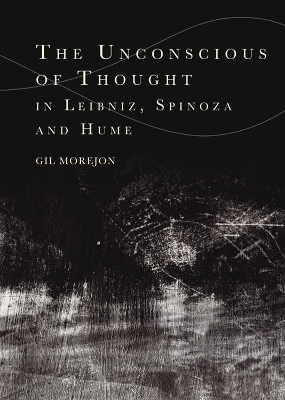
The Unconscious of Thought in Leibniz, Spinoza, and Hume
Seiten
2022
Edinburgh University Press (Verlag)
978-1-3995-0480-5 (ISBN)
Edinburgh University Press (Verlag)
978-1-3995-0480-5 (ISBN)
The works of Leibniz, Spinoza and Hume show that thought is not, as such, a matter of consciousness. Gil Morejon explores the significance of this insight for their conceptions of freedom and ethics.
These three early modern philosophers understood that minds necessarily involve ideas and patterns of thinking that are not conscious. Gil Morejon shows that in this way they sharply distinguish themselves from other major early modern thinkers whose conceptions of the mind tended to identify thinking with consciousness, such as Descartes, Malebranche and Locke. This understanding of the thinking mind as conscious remains popular even today. By contrast, Leibniz, Spinoza and Hume argue instead that thought is not, as such, a matter of consciousness. Morejon explores the significance of this insight for their conceptions of freedom and ethics. By systematically and creatively analysing the major writings of these three thinkers and placing them in the context of the history of Western philosophy, he shows that together they provide us with a metaphysics of ideas that is uniquely helpful for thinking through important problems in contemporary political theory and philosophy of mind. In particular, it allows us to understand how it is possible for people to act against their own interests and in spite of their consciously knowing better.
These three early modern philosophers understood that minds necessarily involve ideas and patterns of thinking that are not conscious. Gil Morejon shows that in this way they sharply distinguish themselves from other major early modern thinkers whose conceptions of the mind tended to identify thinking with consciousness, such as Descartes, Malebranche and Locke. This understanding of the thinking mind as conscious remains popular even today. By contrast, Leibniz, Spinoza and Hume argue instead that thought is not, as such, a matter of consciousness. Morejon explores the significance of this insight for their conceptions of freedom and ethics. By systematically and creatively analysing the major writings of these three thinkers and placing them in the context of the history of Western philosophy, he shows that together they provide us with a metaphysics of ideas that is uniquely helpful for thinking through important problems in contemporary political theory and philosophy of mind. In particular, it allows us to understand how it is possible for people to act against their own interests and in spite of their consciously knowing better.
Gil Morejon, DePaul University.
| Erscheinungsdatum | 02.08.2022 |
|---|---|
| Reihe/Serie | Cycles |
| Zusatzinfo | 1 B/W tables |
| Verlagsort | Edinburgh |
| Sprache | englisch |
| Maße | 156 x 234 mm |
| Themenwelt | Geisteswissenschaften ► Philosophie ► Metaphysik / Ontologie |
| ISBN-10 | 1-3995-0480-0 / 1399504800 |
| ISBN-13 | 978-1-3995-0480-5 / 9781399504805 |
| Zustand | Neuware |
| Haben Sie eine Frage zum Produkt? |
Mehr entdecken
aus dem Bereich
aus dem Bereich
Buch | Hardcover (2024)
Matthes & Seitz (Verlag)
CHF 41,90
Über konstruktivistisches Denken in der Theologie
Buch | Softcover (2024)
Verlag Herder
CHF 79,95


